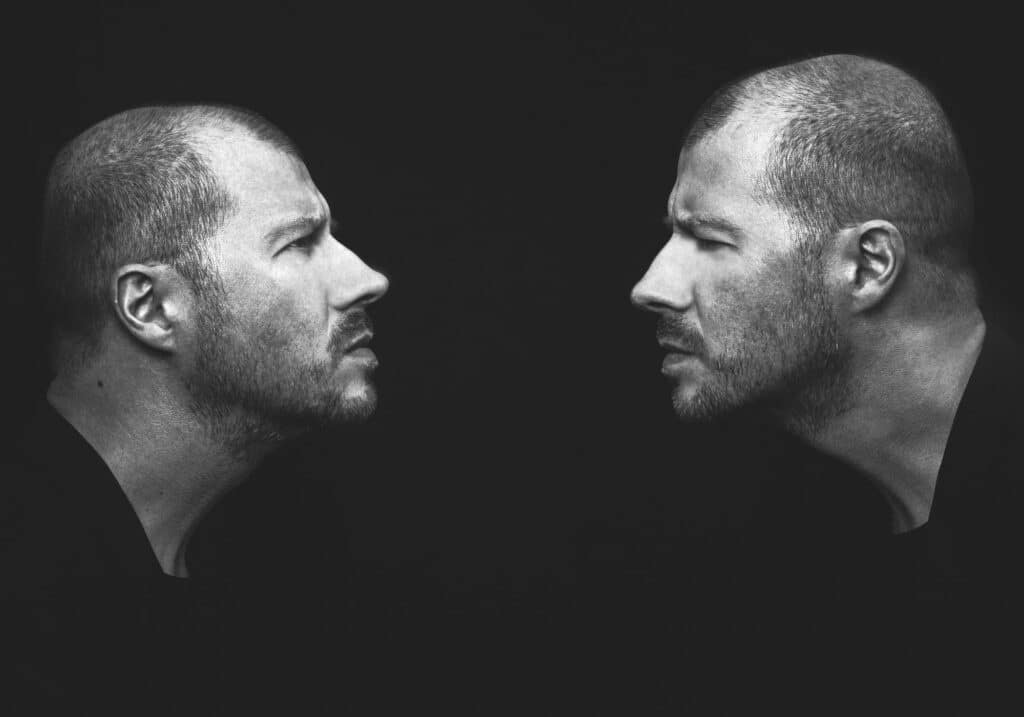People with histrionic personality disorder (HPD) frequently experience a profound need to be the center of attention, and this need significantly influences their thoughts, feelings, and behaviors. This intense desire for attention can often manifest in impulsive and inappropriate actions. Individuals with this disorder typically struggle with self-esteem issues, which are both a result of and a contributor to their reliance on others’ approval and validation.
What is Histrionic Personality Disorder?
Histrionic Personality Disorder (HPD) is classified as a personality disorder characterized by a consistent pattern of attention-seeking behaviors. This condition often impacts personal relationships and can disrupt performance at work or school. Typically, signs of HPD become apparent in late adolescence or early adulthood, presenting unique challenges in social interactions and daily functioning.
Signs and Symptoms of Histrionic Personality Disorder
Recognizing the signs of histrionic personality disorder is essential for accessing the necessary treatment. People with HPD typically display a series of pronounced symptoms that affect their emotional health and social interactions:
- A compelling need for continuous attention and validation from others.
- Persistent seeking of approval or praise.
- Display of shallow, rapidly shifting, or exaggerated emotions.
- A theatrical or exaggerated style of self-presentation.
- Engaging in charming or flirtatious behaviors to attract attention.
- High sensitivity to criticism or disapproval.
- Employing manipulative behaviors to remain the center of attention.
- Engaging in sexually provocative behavior to draw attention.
- An obsession with physical appearance, often reflected through striking clothing choices.
- Feelings of depression or being ignored when not the center of attention.
- Demonstrating dramatic, sometimes embarrassing behaviors in social contexts.
- Acting in a sexually suggestive manner widely, regardless of actual interest.
- Communicating dramatically, with strong opinions not backed by evidence.
- Easily influenced by others, particularly those they admire.
- Difficulty maintaining deep or genuine relationships; interactions may seem shallow or insincere.
- A need for immediate gratification, leading to rapid frustration or boredom.
These indicators underscore the intricate nature of HPD, which significantly impacts a person’s interactions and overall emotional health.
Histrionic Personality Disorder Treatment
Histrionic Personality Disorder falls into Cluster B of personality disorders, characterized by dramatic, emotional, or unpredictable thinking and behavior. This condition, marked by theatrical traits, can lead to significant challenges in both personal and professional life.
Individuals with HPD often show:
- Intense emotional responses and instability
- Distorted self-image
- Constant need for attention
- Exaggerated or inappropriate behavior
- Self-esteem heavily reliant on others’ validation
HPD generally appears in late adolescence or early adulthood and is more commonly diagnosed in women. Treatment is complicated because those with HPD may not recognize their need for intervention, resisting help until they face severe depression or anxiety.
Effective treatment options for HPD typically include:
- Psychoeducational sessions about the disorder
- Cognitive restructuring to change harmful thoughts and behaviors
- Training in social and emotional skills
- Support resources for family members
- Enhancement of interpersonal and coping skills
- Addressing co-occurring mental health disorders
- Increasing self-awareness of underlying issues
Because people with HPD often perform for attention, which may worsen in group settings, individual therapy is preferred over group or family therapy.
Histrionic Personality Disorder Compared to Other Personality Disorders
Histrionic personality disorder shares some characteristics with other personality disorders, particularly those classified within Cluster B, known for dramatic or erratic behaviors.
Histrionic Personality Disorder vs. Borderline Personality Disorder (BPD)
Both Histrionic personality disorder and borderline personality disorder fall into Cluster B. Individuals with BPD, like those with HPD, experience intense and quickly changing emotions. A key characteristic of BPD is a deep fear of abandonment. People with BPD often feel extreme despair and are more likely to engage in suicidal behavior than those with HPD.
Histrionic Personality Disorder vs. Narcissistic Personality Disorder (NPD)
Narcissistic personality disorder is another Cluster B disorder. Those with NPD typically have a heightened sense of superiority and entitlement, expecting praise and special treatment. They often exhibit grandiosity, which is a significant emphasis on their own uniqueness and superiority. This contrasts with HPD, where the focus is more on gaining attention and approval rather than asserting superiority.
Causes And Risk Factors of Histrionic Personality Disorder
The development of histrionic personality disorder involves a multitude of factors and is not linked to a single cause. This complex condition may be influenced by various elements that increase the likelihood of its occurrence:
- Positive reinforcement for attention-seeking behaviors during one’s formative years.
- A familial history that includes personality disorders, as well as anxiety or depression.
- Learning behaviors from a parent or caregiver who displayed similar histrionic traits.
- An upbringing lacking in consistent constructive criticism or discipline.
- Receiving erratic attention from parents, which may contribute to unstable emotional responses.
- Past experiences of depression or anxiety, which can predispose an individual to HPD.
- A genetic predisposition to personality disorders, suggesting a hereditary component.
Recognizing these factors is crucial for gaining a comprehensive understanding of HPD and guiding the strategies for effective treatment and management.
Recognizing the Need for Treatment for Histrionic Personality Disorder
Gaining an understanding of your mental health is a pivotal step toward taking control and managing symptoms effectively. This is particularly crucial for those dealing with histrionic personality disorder, a condition marked by an excessive need for attention and affirmation from others.
HPD is classified under Cluster B personality disorders, characterized by emotional and dramatic behaviors. Individuals with HPD often feel uncomfortable or distressed without constant attention, leading to behaviors that may seem out of character.
The essence of HPD lies in its theatrical nature; the word ‘histrionic’ itself points to a tendency towards dramatics and theatrics. Those with HPD may go to extreme lengths to draw attention and win the approval of others, often acting out or exaggerating behaviors and being easily influenced by others’ opinions.
If you recognize these behaviors in yourself, seeking professional assistance is crucial. It can equip you with the necessary tools and support to handle the intricacies of HPD, allowing for a more stable and rewarding life.
Treatment Options for Histrionic Personality Disorder
Individuals with Histrionic Personality Disorder frequently do not recognize the need for treatment because they often don’t view their behavior as problematic. This challenge, combined with their inclination towards emotional exaggeration and aversion to routine, complicates their engagement in consistent mental health care.
Occasionally, individuals with HPD may seek help when they encounter issues such as anxiety or depression, particularly if these issues stem from relationship problems or other significant life events that exacerbate their HPD traits.
Psychotherapy Treatment for HPD
Psychotherapy is the fundamental treatment for HPD, focusing on uncovering the root causes of the disorder to promote healthier interpersonal relationships and self-awareness.
- Supportive Psychotherapy: This therapy provides a supportive environment that encourages individuals with HPD to openly express themselves. It validates their concerns and helps boost self-esteem, enhance emotional regulation, and develop healthier coping mechanisms.
- Cognitive Behavioral Therapy (CBT): CBT is a structured, goal-oriented therapy that addresses problematic thought patterns and behaviors, helping to reshape how individuals feel and react. It is applied to a broad range of problems, including relationship challenges, addiction, and emotional disorders, facilitating significant behavioral change.
- Dialectical Behavioral Therapy (DBT): DBT is designed to help manage intense emotions by recognizing and accepting them. This therapy teaches skills to transform these strong emotions into more positive, manageable feelings, thereby helping to mitigate harmful behaviors such as self-harm.
- Psychodynamic Psychotherapy: This approach delves into a person’s early life experiences and subconscious to reveal how past dynamics shape present behavior and emotions. It is particularly beneficial for uncovering the underlying issues of HPD, allowing for profound personal insights and healing.
Medication Management
While psychotherapy is the cornerstone of HPD treatment, medications may also be prescribed to manage symptoms of co-existing conditions, such as anxiety or depression. Though no medication directly targets HPD, certain drugs like antidepressants and mood stabilizers can help alleviate associated symptoms, enhancing the effectiveness of psychotherapy.
Our Chattanooga mental health treatment center specializes in providing personalized outpatient treatment programs for individuals struggling with HPD. We offer a supportive, discreet environment that utilizes a comprehensive therapeutic approach and, when suitable, medication management. This integrated strategy aims to foster lasting recovery and improve overall well-being. Contact us at 423-441-4650 to learn more about our histrionic personality disorder treatment options and how we can assist you or your loved one on this journey to recovery.
Histrionic Personality Disorder Treatment at Iris Wellness Group
Living with histrionic personality disorder, whether personally or through a loved one, can significantly disrupt life’s balance. At Iris Wellness Group our Chattanooga personality disorder treatment center specializes in personality disorders, providing crucial educational materials and deep insights into the nature of HPD. Our skilled outpatient treatment team is ready to help you or your loved one overcome the challenges associated with this condition, guiding you toward a more fulfilling and stable life. Begin your transformative journey to wellness by contacting us today at 423-441-4650.












